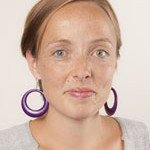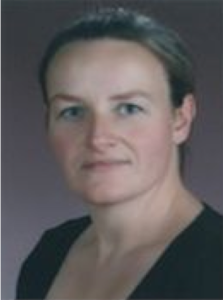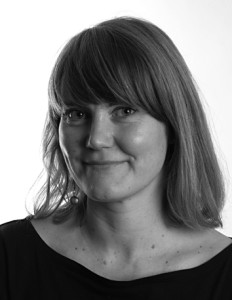Expoloring Diversity Seminar Seriens Workshop
“Transnational(ism)” in IMER-research – Networks, boundaries and mobilisation.
In recent years there has been a general increase in empirical research and theoretical engagement with transnationalism and transnational networks. In regard to the field of international migration and ethnic relations, transnationalism has been hotly debated and a central concern for research. Some approaches have focussed on the more manifest, organizational aspects of relations between sending and receiving countries, such as studies of remittances, migration patterns etc. Others have focussed on phenomenological dimensions; transnational social imaginaries, the stretching of lifeworlds in time and in space. Another division is between research following a more traditional Diaspora-approach, exploring the networks and transactions between “mother”- and recipient countries, and research focussing on migrants’ “double consciousness” as a more persistent dimension in the migrant situation. Both approaches include the meaning and the politics of borders and boundaries, but in different ways. Whereas the first approach tends to centre nation and ethnicity as imperative identity-dimensions in transnational mobilisation, the second approach opens other venues for research on transnational imagination and action. This second approach is perhaps more clearly envisioned in Paul Gilroys work on the Black Atlantic. Gilroy’s transnationalism is one that looks beyond ethnicity and nation as identity-construction dimensions, and focuses on the potential transnational solidarity stemming from being reduced to the other within the nation-state framework. If the first, and traditional, transnationalism approach focuses on the positive aspects of national and ethnic identities, the second approach departs from the negative aspects of the very same identities. These different approaches can again be seen to lead to different research focuses and also to different forms of political mobilisation.
This workshop brings together scholars who work in the intersection between transnationalism research and IMER-research. The purpose is to critically discuss what is meant by the terms “transnational” and “transnationalism”, and to provide some theoretical, methodological and empirical guidelines to research. How do we distinguish between “transnational” and “postnational”, how is the conceptualisation of transnational(-ism) linked to debates in globalisation theory, and how do we incorporate material, political and cultural aspects in research on transnationalism and migration?
IMER-Bergen has at present three research projects in the field of transnationalism research. Two of these focus on transnational mobilisation among young adults of ethnic minority background, the third focuses on different forms of transnational relations and mobilities, their spatial logics and the politics of space/place.
WORKSHOP program
“Transnational(ism)” in IMER-research – Networks, boundaries and mobilisation –
| Tid : | Mandag 17 Desember 2007, 10.00-17.00 |
| Sted : | UiB, Lauritz Meltzers hus, 9 etasje, Seminarrom. |
| 10.00 | Mette Andersson, UiB |
| ” Begrep og forskningsfokus” | |
| 10.30 | Thomas Olesen, University of Aarhus |
| “The Porous Public” | |
| 11.00 | Spørsmål og diskusjon |
| 11.30 | Pause |
| 11.45 | Garbi Schmidt, Danish National Institute of Social Research |
| “Transnational or Universal? Muslim Identity Forming Across National Boundaries” | |
| 12.15 | Spørsmål og diskusjon |
| 12.45 | Lunsj |
| 13.45 | Øivind Fuglerud, UiO |
| “Transnational practises and diasporic identification: Lessons from the Tamil case” | |
| 14.15 | Spørsmål og diskusjon |
| 14.45 | Pause |
| 15.00 | Elisabeth Eide, UiO |
| “Caricatures turning transnational – and landing in national contexts” | |
| 15.30 | Spørsmål og diskusjon |
| 16.00 | Generell diskusjon (slutt 17.00) |
Exploring Diversity SEMINAR SERIES
WORKSHOP
“Transnational(ism)” in IMER-research – Networks, boundaries and mobilisation –
In recent years there has been a general increase in empirical research and theoretical engagement with transnationalism and transnational networks. In regard to the field of international migration and ethnic relations, transnationalism has been hotly debated and a central concern for research. Some approaches have focussed on the more manifest, organizational aspects of relations between sending and receiving countries, such as studies of remittances, migration patterns etc. Others have focussed on phenomenological dimensions; transnational social imaginaries, the stretching of lifeworlds in time and in space. Another division is between research following a more traditional Diaspora-approach, exploring the networks and transactions between “mother”- and recipient countries, and research focussing on migrants’ “double consciousness” as a more persistent dimension in the migrant situation. Both approaches include the meaning and the politics of borders and boundaries, but in different ways. Whereas the first approach tends to centre nation and ethnicity as imperative identity-dimensions in transnational mobilisation, the second approach opens other venues for research on transnational imagination and action. This second approach is perhaps more clearly envisioned in Paul Gilroys work on the Black Atlantic. Gilroy’s transnationalism is one that looks beyond ethnicity and nation as identity-construction dimensions, and focuses on the potential transnational solidarity stemming from being reduced to the other within the nation-state framework. If the first, and traditional, transnationalism approach focuses on the positive aspects of national and ethnic identities, the second approach departs from the negative aspects of the very same identities. These different approaches can again be seen to lead to different research focuses and also to different forms of political mobilisation.
This workshop brings together scholars who work in the intersection between transnationalism research and IMER-research. The purpose is to critically discuss what is meant by the terms “transnational” and “transnationalism”, and to provide some theoretical, methodological and empirical guidelines to research. How do we distinguish between “transnational” and “postnational”, how is the conceptualisation of transnational(-ism) linked to debates in globalisation theory, and how do we incorporate material, political and cultural aspects in research on transnationalism and migration?
IMER-Bergen has at present three research projects in the field of transnationalism research. Two of these focus on transnational mobilisation among young adults of ethnic minority background, the third focuses on different forms of transnational relations and mobilities, their spatial logics and the politics of space/place.
Exploring Diversity SEMINAR SERIES
WORKSHOP program
“Transnational(ism)” in IMER-research – Networks, boundaries and mobilisation –
| Tid : | Mandag 17 Desember 2007, 10.00-17.00 |
| Sted : | UiB, Lauritz Meltzers hus, 9 etasje, Seminarrom. |
| 10.00 | Mette Andersson, UiB |
| ” Begrep og forskningsfokus” | |
| 10.30 | Thomas Olesen, University of Aarhus |
| “The Porous Public” | |
| 11.00 | Spørsmål og diskusjon |
| 11.30 | Pause |
| 11.45 | Garbi Schmidt, Danish National Institute of Social Research |
| “Transnational or Universal? Muslim Identity Forming Across National Boundaries” | |
| 12.15 | Spørsmål og diskusjon |
| 12.45 | Lunsj |
| 13.45 | Øivind Fuglerud, UiO |
| “Transnational practises and diasporic identification: Lessons from the Tamil case” | |
| 14.15 | Spørsmål og diskusjon |
| 14.45 | Pause |
| 15.00 | Elisabeth Eide, UiO |
| “Caricatures turning transnational – and landing in national contexts” | |
| 15.30 | Spørsmål og diskusjon |
| 16.00 | Generell diskusjon (slutt 17.00) |
The workshop is organized by Mette Andersson, Associate Professor, Dept. of Sociology , UiB and Knut Hidle, Research Director, Agderforskning
Exploring Diversity SEMINAR SERIES
WORKSHOP
“The Crystallisation of National Identities in Contemporary Europe”
Open IMER/UiB Workshop
This workshop will deal with a trend in many European states which may be referred to with labels such as the ‘crystallisation’ of national identities or neo-nationalism.
The workshop will examine questions like: is there a particular encompassment of globalisation by the European nation-states, generating neo-nationalism or the crystallisation of national identities? Are neo-nationalism and crystallisation inherent results emanating out of emerging European state-forms influenced by globalisation? Is the historical European national diversity generating something specific European which manifests itself in these contemporary phenomena? Or are there, at the level of generation, a restructuration of political universes and modes of citizenship where neo-nationalism and/or crystallisation of national identities are concomitants? If so, which are the key structurating forces? What (new) (world) order would such neo-nationalism and/or crystallisation imply? To whom would it give more power and legitimacy?
Workshop programme :
Wednesday September 17. :
13.15 – 16.30
1. Yngve Lithman: Welcome and Introduction
2. Bruce Kapferer: Globalization and the Nation State.
3. Mette Andersson: The social imaginary of first generation Europeans.
Thursday September 18. :
09.15 – 12.15
1. Andre Gingrich: “National Identity Inc.”: Uncertainties, politics of emotions, and the fading of European visions.
2. Sigalit Ben-Zion: The problem of the crystallization of national identity in Europe in the post-multiculturalism era.
3. Yngve Lithman: Nationalism, Chrystallization: observations from Scandinavia.
13.15 -17.00
1. Christian Joppke: Changes in the conceptual of citizenship in contemporary Europe: Liberalism and the nation.
2. Elisabeth Ivarsflaten: The anti-racism norm in Western European immigration politics: Why we need to consider it and how to measure it.
3.Hakan Sicakkan: Tracing the de-crystallization of European national identities: humanitarian sovereignty sharing, alternative public spaces and invented belongings.
WORKSHOP
Migration in Nordic societies: Recent perspectives
The workshop is organised as a collaboration between IMER Bergen and the Department of Sociology, UiB. It is open for all interested researchers and students.
Program:
09.00: Welcome by Lise Widding Isaksen (Dept. of Sociology, UiB).
09.15: Helle Stenum (Danish Institute for International Studies, Copenhagen): “Bane and Boon, Gains and pains; Dos and Don’ts. Moral economy and flexible citizens in au pair migration”.
09.45: Coffee break.
10.00: Lise Widding Isaksen (Dept. of Sociology, UiB): “Domestic Workers and Political Agency”.
10.30: Mariya Bikova (Dept. of Sociology, UiB): “Au pair Migration Norway – Philippines”.
11.00: Discussion. Discussant: Christine M. Jacobsen (IMER Bergen and Dept. of Social Anthropology, UiB).
12.00 – 13.00: Lunch break.
13.00: Anna Gavanas (Institute for Future Studies, Stockholm): “Migration, in/formalization and the expanding domestic service sector in Sweden”.
13.30: Vera Galindabaeva (European University, St. Petersburg): “The Effects of Rural-Urban Migration on Transformation of Child Care Arrangemenst in Buryat Rural Families in Post-Soviet Russia”.
14.00: Coffee break.
14.15: Synnøve Bendixsen (IMER Bergen and Uni Rokkan Centre): Ethiopian Irregular Migrants’ demonstration in Oslo Cathedral.
14.45 -15.30: Discussion. Discussant: Lise Widding Isaksen (Dept. of Sociology, UiB).
Friday 7 October, 09.00-15.30.
Faculty of Law, Seminar room 1, Magnus Lagabøtesplass 1.
WORKSHOP POSTER
Halvar A. Kjærre: “Politics and Mobilities”
Tarje I. Wanvik: “Migration and Social Inequalities”
Halvar A. Kjærre (Department of Social Anthropology, UiB) and Tarje I. Wanvik (Department of Geography, UiB) have recently been recruited to the IMER Bergen research unit as PhD candidates.
In this seminar they will present their PhD projects. After the presentation there will also be a presentation of IMERS new webpages.
Ida Tolgensbakk – Swedish migrants in Norwegian media and popular culture
In this seminar Ida Tolgensbakk will present some findings from her PhD research on young, Swedish labor migrants in Oslo. In everyday encounters in Norway, the young Swedes are identified as such primarily through linguistic characteristics, and not for instance skin color, phenotype, or dress. That is, they are audible rather than visible migrants. Tolgensbakk will discuss what kind of consequences this has on the lives of the young Swedes, as well as look into the related questions of how the young Swedes are presented in Norwegian media and popular culture.
Ida Tolgensbakk
Department of cultural studies and oriental languages, UiO. Ida Tolgensbakk has a master in folklore studies from 2005 (on national identity in the Faroe Islands). She worked three years at the Norwegian Institute of Local history, mainly focusing on migrant’s life stories. She is now studying young, Swedish labor migrants moving to Oslo. Her research is based on life story interviews, fieldwork on a Facebook group, and texts from popular culture and the media.
Read more here: http://www.hf.uio.no/ikos/english/people/aca/idatol/
Communicating Migration Seminar Series IMER Bergen spring and autumn 2014
The IMER seminar series for 2014 will cover how migration and ethnic relations are communicated in every-day encounters, in mass and social media, in politics and in teaching at the universities. Has the way people talk about migration and migrants in different social contexts changed over time, and in which ways has it changed? How does migration theory and research fit in with other topics and theories in the social sciences, and how do results from migration research inform public debate and policy development? Communicating migration will be discussed from various angles in our seminar series on international migration and ethnic relations during spring and autumn 2014. We welcome papers that touch upon this broad theme from different angles. Historical analyses of change over time in regard to politics and public debate, research foci and disciplinary concerns are specifically welcomed. The seminar series will end with a two-day conference in October/November 2014.
IMER Abroad: PROVIR Seminar – Precarious migrants and access to welfare: Between policy, law and practice
This workshop will discuss the legal and experienced dilemmas found in the encounter between migrants living in a legally precarious situation and the welfare state in which they reside. Participants will present ongoing empirically based research on migrants’ access to welfare in policy, law and practice in various European countries. They will also discuss the particular position of youth and children in vulnerable situations. The program is available here.
Mistillitens migrasjon: Europeisk sør-nord mobilitet i kjølvannet av krisa
Tema for innlegget er den nye Europeiske sør-nord migrasjonen. Den empiriske analysen er basert på dybdeintervjuer med noen av dem som har reist fra Spania til Norge etter kriseåret 2008. Innlegget vil belyse hvordan sør-nord migrasjonen i kjølvannet av krisa er mer enn en desperat flukt fra arbeidsledighet i hjemlandet. Den vidtrekkende mistilliten til det politiske systemet og følelsen av en dyptgripende håpløshet i hjemlandet er viktige migrasjonsfaktorer i tillegg til jobbmuligheter for dem som kommer til Norge.
Susanne Bygnes (phd) er postdoktor ved universitetet i Bergen. Hun leder det fireårige prosjektet Labour Migration in Uncertain Times: Migration from Spain to Norway after 2008, finansiert av forskningsrådets VAM-program. Hun har publisert en rekke internasjonale artikler på tema som mangfold og likestilling, blant annet Ambivalent Multiculturalism (2012) i tidsskriftet Sociology.
IMER Lunch: Astrid Ouahyb Sundsbø – Social mixing policies: What You Want and What You Get
In the public debate and contemporary social policies in Norway as well as in other countries, concentrations of “immigrants” in certain areas of a city are considered to be unfortunate and something which needs to be fought against (see i.e. Gakkestad 2003; Akerhaug 2012). It is anticipated that spatial concentrations of “immigrants” enforces the social isolation of “immigrants” and triggers criminal activities, among other aspects. This becomes very obvious when a “high percentage of immigrants” in an area serves as basis for referring to that area as a “ghetto” or “insecure” (see i.e. Sæter 2005; Vassenden: 2007; cf. Akerhaug 2012).
In this lunch seminar, the idea of social mixing, which is not just common in the general public debate but also a manifested major urban policy and planning goal (Sæter & Ruud 2005; Huse, Sæter & Aniksdal 2010; cf. Musterd 2005) will be discussed. By using some illustrations both from the academic debate as well as own empirical work, it is shown that it is necessary to be critical about this concept.
It is referred to literature arguing that there is a lack of empirical evidence showing that the residential segregation of “immigrants” has any effect at all, for instance on “integration” and crime (for instance Musterd 2005; Galster 2007; Lees 2008). Furthermore, it is discussed that the imagination of social mixing as an ideal way to tackle the “multicultural challenge” might be founded on a highly problematic understanding of “immigrants“ and their norms and values as inherently “bad” (cf. Eriksen 1996: 51). This is shown by drawing on statements from interviews with members from the majority population residing in Oslo.
Astrid Ouahyb Sundsbø
 Astrid Ouahyb Sundsbø (PhD) is a postdoctoral research fellow at the Georg-Simmel Center for Metropolitan Studies in Berlin. She holds a doctoral degree in sociology from the Humboldt-University of Berlin (2012). From 2012-2014 she worked as a postdoctoral researcher at the Center for a Sustainable University at the University of Hamburg. Her main fields of research compromise: Social inequality, residential segregation in cities, migration and interethnic relations. Her most recent publication is Grenzziehungen in der Stadt. Ethnische Kategorien und die Wahrnehmung und Bewertung von Wohnorten (Springer VS, 2014) where it is discussed whether ethnic boundary making on the side of the majority population could be a possible explanation for the residential concentration of immigrants in Berlin and Oslo.
Astrid Ouahyb Sundsbø (PhD) is a postdoctoral research fellow at the Georg-Simmel Center for Metropolitan Studies in Berlin. She holds a doctoral degree in sociology from the Humboldt-University of Berlin (2012). From 2012-2014 she worked as a postdoctoral researcher at the Center for a Sustainable University at the University of Hamburg. Her main fields of research compromise: Social inequality, residential segregation in cities, migration and interethnic relations. Her most recent publication is Grenzziehungen in der Stadt. Ethnische Kategorien und die Wahrnehmung und Bewertung von Wohnorten (Springer VS, 2014) where it is discussed whether ethnic boundary making on the side of the majority population could be a possible explanation for the residential concentration of immigrants in Berlin and Oslo.


